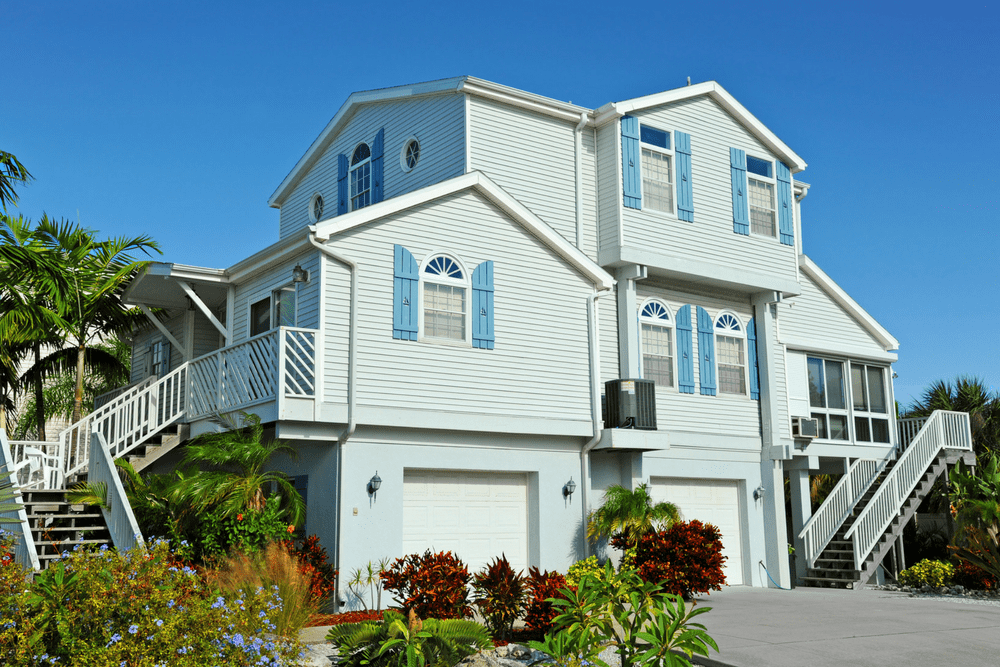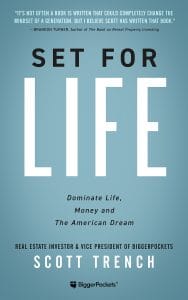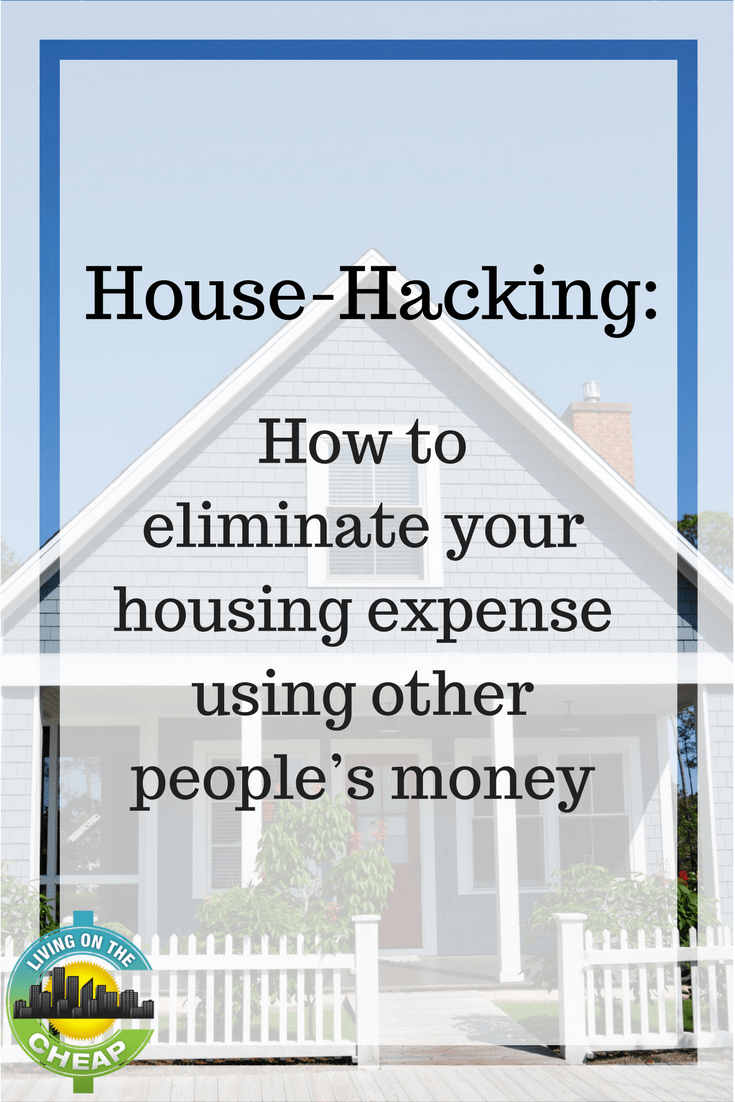This blog post provides an overview of some concepts discussed at length in my new book, “Set for Life.” The book walks full-time employees from little to no net worth to hundreds of thousands of dollars in after-tax wealth not including home equity and retirement accounts and towards early financial freedom.

Ever heard anyone tell you to begin building wealth by cutting out your lattes? How about your happy hour? How about by bringing lunch to work?
While there’s nothing wrong with doing those things, the problem is that they just aren’t really significant parts of your budget.
The real problem is not your clothing budget, not that you spend too much going out to the movies or even going on vacation. The real problem is your rent/mortgage. The real problem lies in your transportation expenses.
Focus on those areas if you want to truly make a drastic change in your financial position quickly.
And the single largest part of your spending is going to be housing, comprised of your rent or mortgage payment.
Enter House Hacking.
Imagine that you could wipe out that housing expense entirely. Imagine if you could go from paying hundreds or thousands of dollars per month in rent or mortgage to making money off of your housing situation — with minimal disruption to your personal life,
House-hacking involves buying an investment property (a duplex, triplex, or quadplex, or even a single family home with extra bedrooms for those willing to share) and renting out the extra space to carefully selected tenants/neighbors.
It’s the ultimate personal finance hack. It allows the owner to live for free or exceptionally low cost and pick up a piece of investment real estate with 5% or less down.
My story:
 In 2014, I decided that it was time to try this out for myself. I started from $0 net worth, saved up my first $20,000 by living on the cheap (see what I did there?) and I found a run-down duplex in foreclosure listed at $240,000. I calculated that rents per side would come to about $1,100. I put down just 5% ($12,000), using an FHA loan. My mortgage was $1,550.
In 2014, I decided that it was time to try this out for myself. I started from $0 net worth, saved up my first $20,000 by living on the cheap (see what I did there?) and I found a run-down duplex in foreclosure listed at $240,000. I calculated that rents per side would come to about $1,100. I put down just 5% ($12,000), using an FHA loan. My mortgage was $1,550.
I spent three months fixing this place up, rented out the other side for $1,150, and the second bedroom in my 2 bed/1 bath unit for $550. In total, I collected $1,700 per month, just enough to barely cover my mortgage plus utilities. I did all of the minor repairs necessary to maintain the property myself (which, by the way, were no more or less than your average homeowner — yes I mowed my lawn and shoveled the snow on winter days here in Denver, CO).
If the home needs more major repairs, here are some tips to pay for those.
A little over a year later, I moved out of this duplex. With my improvements, I was able to increase rents, and refinance out of my mortgage. FHA loans often come with expensive mortgage insurance, so this refinance reduced my monthly payment to $1,425, and my rents totaled $2,625 per month.
In a problem free month, I collect $1,200. I’ve also built up a large reserve to handle emergencies with the property.
Guess what I did after moving out? You guessed it — I bought again. Here I am in 2017 with TWO income producing duplexes, and actively looking for my next investment property/house-hack.
House-hacking’s advantages:
 This process can be repeated by folks earning around the median income in almost every city in the country — excluding the top two or three most expensive places of course. It’s easy to get into, as one can put down extremely low down payments and repeat the strategy year after year. Most people think that they can only use the FHA loan once in a lifetime. Not true. You can only have one FHA loan at a time. Big difference. That means that if you are able to refinance out of your FHA loan, you can use another one to purchase the next property.
This process can be repeated by folks earning around the median income in almost every city in the country — excluding the top two or three most expensive places of course. It’s easy to get into, as one can put down extremely low down payments and repeat the strategy year after year. Most people think that they can only use the FHA loan once in a lifetime. Not true. You can only have one FHA loan at a time. Big difference. That means that if you are able to refinance out of your FHA loan, you can use another one to purchase the next property.
The house-hacker is in a unique situation — he or she is able to use extreme leverage (put down 5% or less on an asset worth hundreds of thousands of dollars) at little risk.
Why does the house-hacker have little risk? It’s because, done correctly, the house-hacker has three options unavailable to anyone else in a bad economy:
First, the house-hacker can continue living in the property happily. In this scenario, the house-hacker is FAR better off than homeowners in their market. The homeowners do not have the rent (even reduced rent in a downturn) from tenants to help them offset the costs of their mortgage. The worst case scenario for the house-hacker is likely that they will be forced to live in the property for a few extra years, rather than decades like many homeowners.
Second, the house-hacker can move away easily. Unlike a typical homebuyer, the house-hacker intentionally buys a property that would make sense as a rental. The house-hack would produce a stable cash flow for the owner regardless of whether the owner continues to live there.
Third, like everybody else, the house-hacker always has the option to sell.
Conclusion:
The house-hacker is likely to make money when the market appreciates, live cheaply in a stable market, and get substantial aid from tenants in a down market. It’s the ultimate low-risk, high-reward way to buy a first home.
If you really want to live for low cost, build passive income, and benefit from potential appreciation, consider house-hacking with your first or next home purchase. A few years of house-hacking could help you set yourself up for life.
And just to be clear, this is not to say that you shouldn’t purchase your dream home. Just be smart — instead of buying that dream home now, house-hack first for a few years, and then let your real estate portfolio pay for that dream home!
Did you enjoy this article and learn something new? There’s plenty more where that came from. Read my newest book, Set for Life, and learn how hard work, smart lifestyle choices, and intelligent investing can take you from little to no net worth to early financial freedom in ten years or less. Order Set for Life now on Amazon and Barnes and Noble.

